Netflix’s royal series The Crown has officially returned for a third season, but with an entirely new cast — led by Academy Award winner Olivia Colman as Queen Elizabeth II. The new season, released on Netflix on Nov. 17, features the storyline of a young Prince Charles, from his romantic interest in Camilla Shand to his fight to make his mark on the royal family. Charles, who is played by Josh O’Connor, star of the British series The Durrells, was described as “by far the most popular of the young royals” by TIME in 1978.
“Hollow crown rounds the mortal temples of a king, keeps death his court and there the antic sits” are the first words spoken by a young Prince Charles in the show’s new season. Charles, sitting in front of a mirror, is practicing for a play in which he takes on the role of King Richard II. Both Charles and Richard II—the subject of the circa 1595 Shakespeare play for which he is rehearsing—were given the title Prince of Wales at age 9, the former in 1958 and the latter in 1376.
Here, we sort the fact from the fiction for Prince Charles’ storyline in The Crown, Season 3.
How did Prince Charles and Camilla Shand meet?
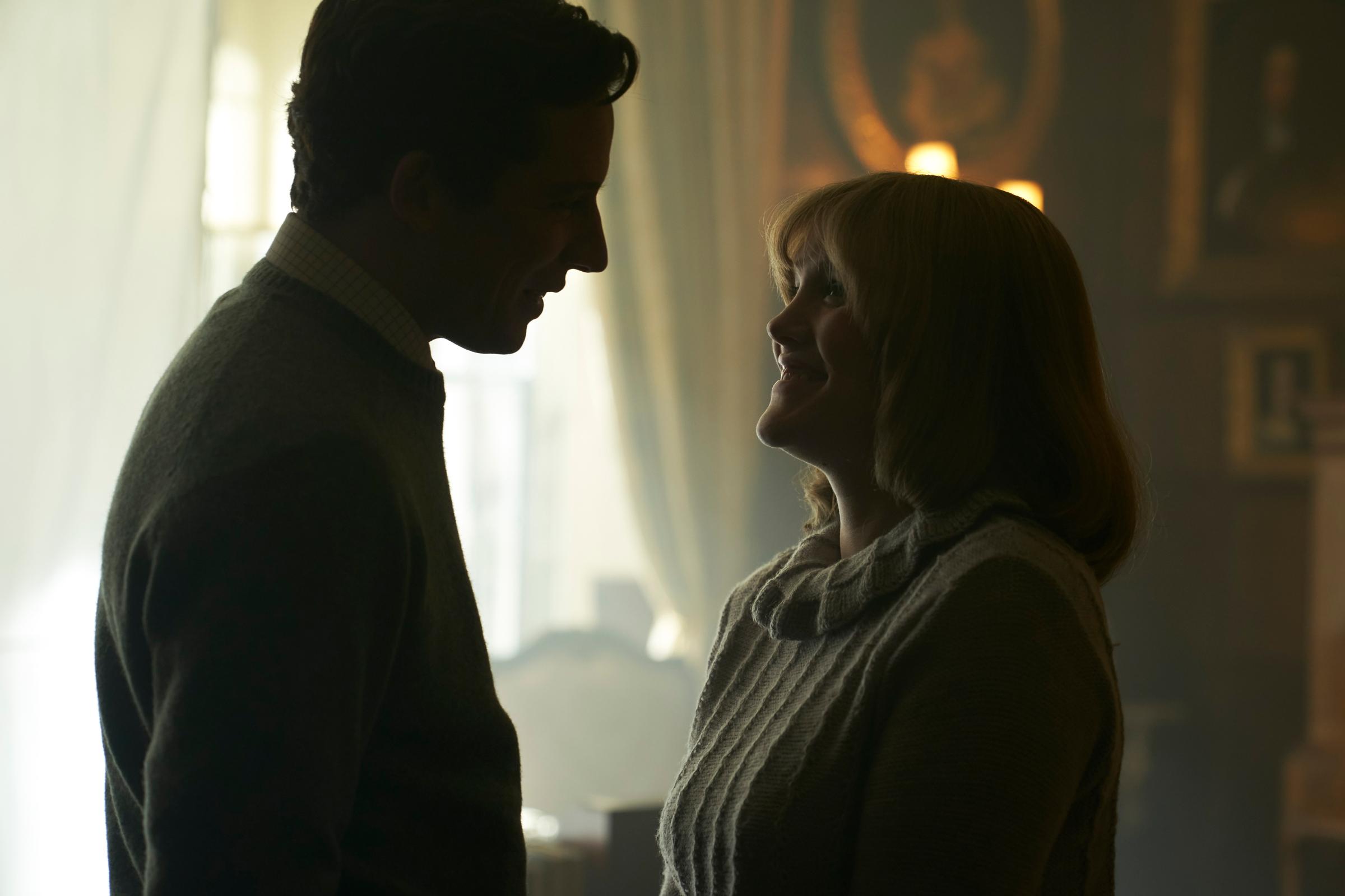
The romance between Prince Charles and Camilla Shand, played by Call the Midwife actor Emerald Fennell, is a key storyline in the second half of The Crown‘s third season. In episode 8, Prince Charles is playing polo at Windsor Park against Andrew Parker Bowles. Camilla, sitting on the sidelines, cheers in support of Charles, and the pair lock eyes.
But The Crown depicts Camilla as using her fledgling relationship with Charles as a way to get back at her longtime boyfriend Andrew, played by Broadchurch actor Andrew Buchan. Earlier in the episode, viewers see Camilla and Andrew arguing about his relationship with another woman. In response, Camilla says, “You deserve to know how it feels.”
Amid these tensions, Charles and Camilla begin a romance. Camilla visits the Prince at his home for a candle-lit dinner, and Charles tells his great uncle, Lord Mountbatten (Charles Dance), that Camilla is “the one.”
In reality, Charles, then 22, and Camilla, then 24, did meet at a polo match in Windsor Great Park in 1970, and the couple started dating. Reportedly, Camilla told him at a party: “My great-grandmother was the mistress of your great-great-grandfather. I feel we have something in common.”
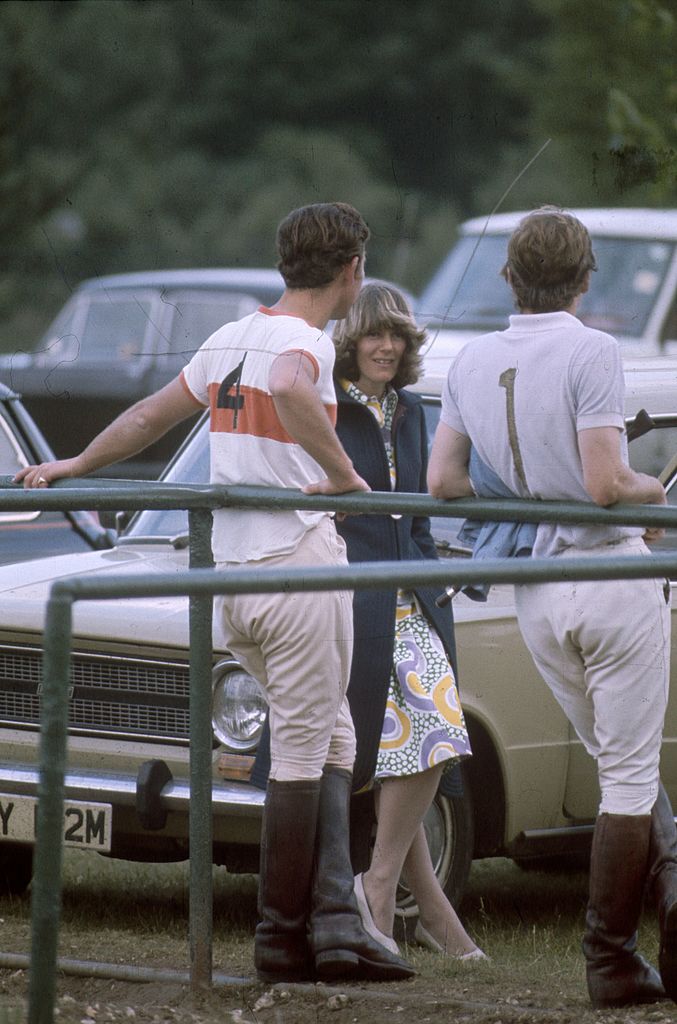
Was Andrew Bowles dating Princess Anne?
In the third season, Prince Charles’ younger sister, Princess Anne (Erin Doherty), meets Andrew Parker Bowles at a ball. The couple begins a relationship, but there’s a catch. Bowles has been seeing Camilla, making for a complicated love quadrangle between Andrew, Anne, Camilla and Charles.
Andrew suggests, after spending the night with Princess Anne, that they end their relationship before anyone gets hurt. “It tends to happen to anyone who gets in the way… of me and her,” Andrew says, referencing his relationship with Camilla.
Princess Anne is undeterred by the revelation. In response, she tells Andrew: “This conversation is going round and round in circles — and I preferred it when we were going round and round in circles.” She assures him that she understands who he is and she won’t be hurt by their fling.
In reality, Princess Anne did start a relationship with Andrew in 1970, the year Prince Charles met Camilla. Anne was 20 at the time, while Andrew, who had already been in a relationship with Camilla for five years, was 31.
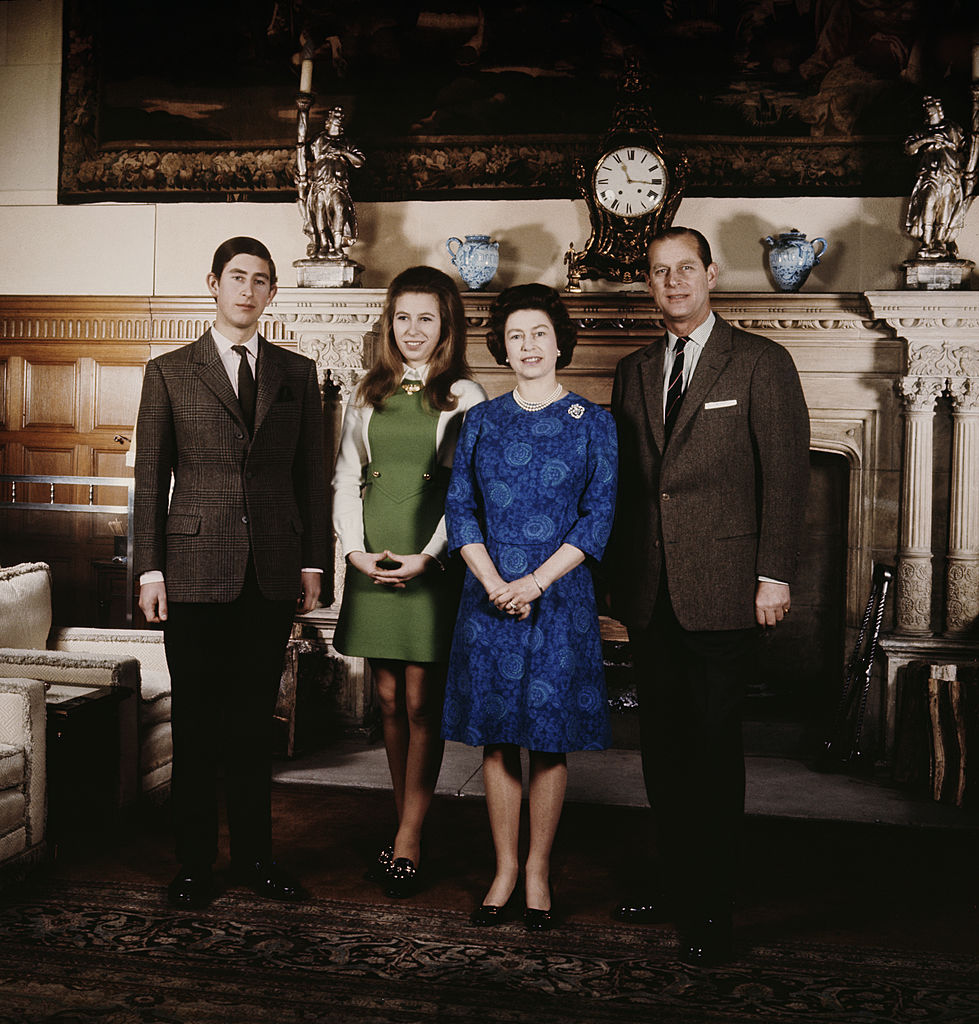
Why did Prince Charles and Camilla Shand break up?
In The Crown, Prince Charles calls Camilla to tell her that she “is miraculous.” But as he tells her that what they have is “special,” Andrew emerges from her room.
Knowing that he isn’t the only party interested in Camilla, Charles decides that he should propose to her. But in the series, the Queen Mother and Lord Mountbatten conspire against the couple to ensure that Charles never marries Camilla.
Lord Mountbatten organizes an eight-month military posting overseas to “bring [Charles] to his senses,” while the Queen Mother meets with the parents of Camilla and Andrew and helps arrange their marriage. After hearing of the scheme, the Queen calls the Queen Mother and Lord Mountbatten to explain themselves, saying: “What if it is love? Shouldn’t it be allowed to run its course? I was allowed to marry my choice.” But, defending her scheme, the Queen Mother argues that a marriage between Charles and Camilla would be too “dangerous” and “unpredictable”.
Prince Charles is left heartbroken after Camilla breaks up with him and returns to Andrew. As Prince Charles is waiting for transport to take him on his tour, he calls Camilla, speechless, and asks her if she loves Andrew. She admits that in a way, she does, but that her feelings for Charles were real. As viewers watch Camilla marry Andrew, Charles is left on his ship, alone and in tears.
In reality, Camilla did marry Andrew Parker Bowles in July 1973, but the line between truth and drama is blurred in parts of The Crown. Christopher Wilson, author of A Greater Love: Charles and Camilla, told the Telegraph of the scheme by the Queen Mother and Lord Mountbatten to break up the couple: “I can discount them cooking up any kind of plot.”
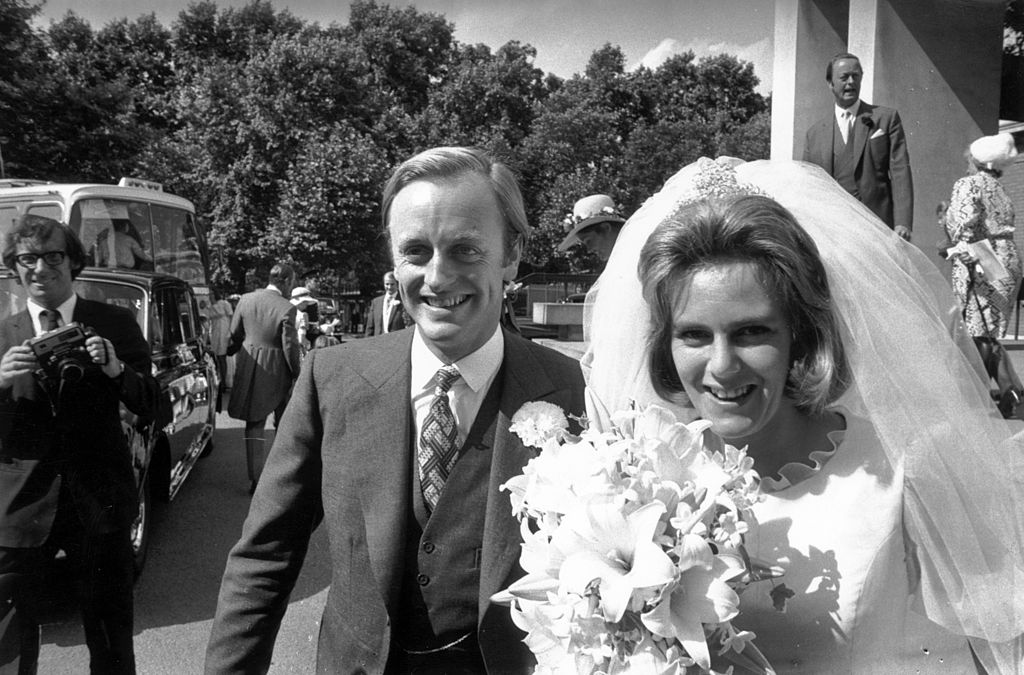
“By the time Camilla actually met Prince Charles, she was already four years into a five-year campaign to get Andrew Parker Bowles up the aisle,” Wilson added. “When she met Prince Charles, she was only a year or so away, or less than two from realizing this ambition.”
Penny Junor, who has written biographies of Prince Charles and his now-wife Camilla, told the Telegraph: “[Andrew] was a commanding officer, Charles was very much a work in progress at that point, there was no competition between the two men.”
Junor agreed with Wilson, arguing that it was unlikely that Lord Mountbatten had arranged for Prince Charles to be posted abroad. “He had joined the Navy, he was assigned to a ship and that ship was going to the Caribbean,” Junor said. “I have never heard [such a plot] suggested at all.”
Did Prince Charles really give a speech in Welsh?
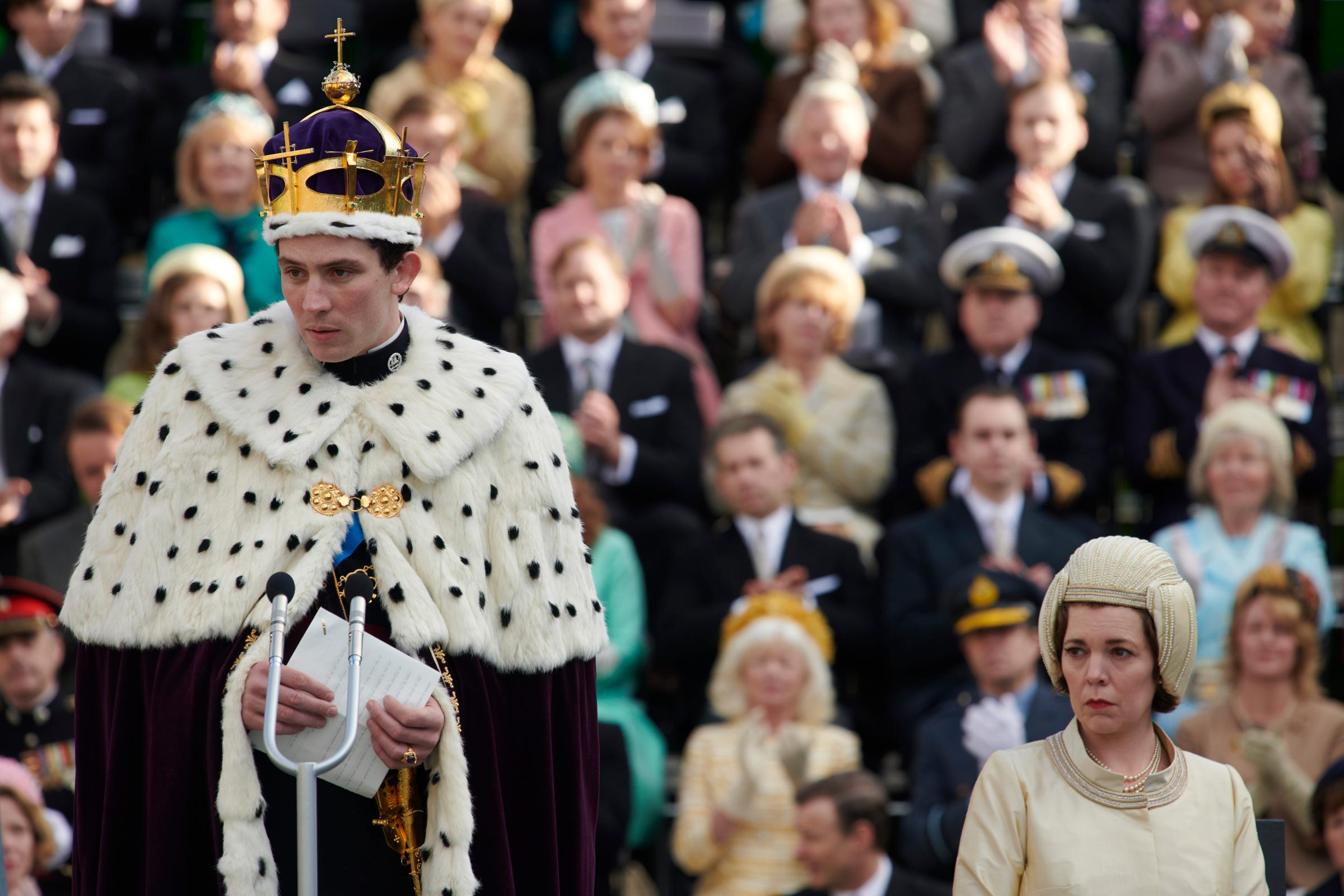
In the sixth episode of Season 3, entitled ‘Tywysog Cymru’, viewers meet a young Price Charles grappling with his role as heir of the throne. In this episode, amid rising Welsh nationalism, Prime Minister Harold Wilson suggests that the Queen should take Charles, the Prince of Wales, out of Cambridge to spend a semester at Aberystwyth University to learn the language and give a speech. The speech was intended for Prince Charles’ Investiture, a ceremony marking the formal acknowledgement of Charles as the Prince of Wales.
And Charles does just this — he is sent to Wales and is taught by Edward Millward, who is a Welsh nationalist and therefore opposes the Royal Family’s power in Wales. The pair get off to a rough start, as it becomes clear that Prince Charles knows nothing of the culture or history of Wales. But eventually, Charles and his professor form a friendship after the student writes a speech which expresses his understanding of the Welsh wanting to hold onto their heritage, culture and distinct identity. Charles’ speech, the contents of which would anger the Royal Family, are spoken in Welsh — so at first his family has no idea what he has said.
But at the end of the episode, the tense relationship between Charles and the Queen comes to a head as the Queen receives a translated version of the speech. She tells Charles: “You were sent to Wales to show respect, and heal divisions, not to inflict them on your own family… The similarity between Wales’ suffering and yours was clear.”
Charles replies with passion: “Am I seen for who and what I am? No. Do I have a voice?”
In reality, Prince Charles did attend the University College of Wales at Aberystwyth for a term in 1969, where he was taught to speak Welsh by lecturer Edward Millward, a passionate Welsh nationalist and the former Plaid Cymru Vice President. It was the first stage of a lifelong practice of demonstrating his affection for Wales.
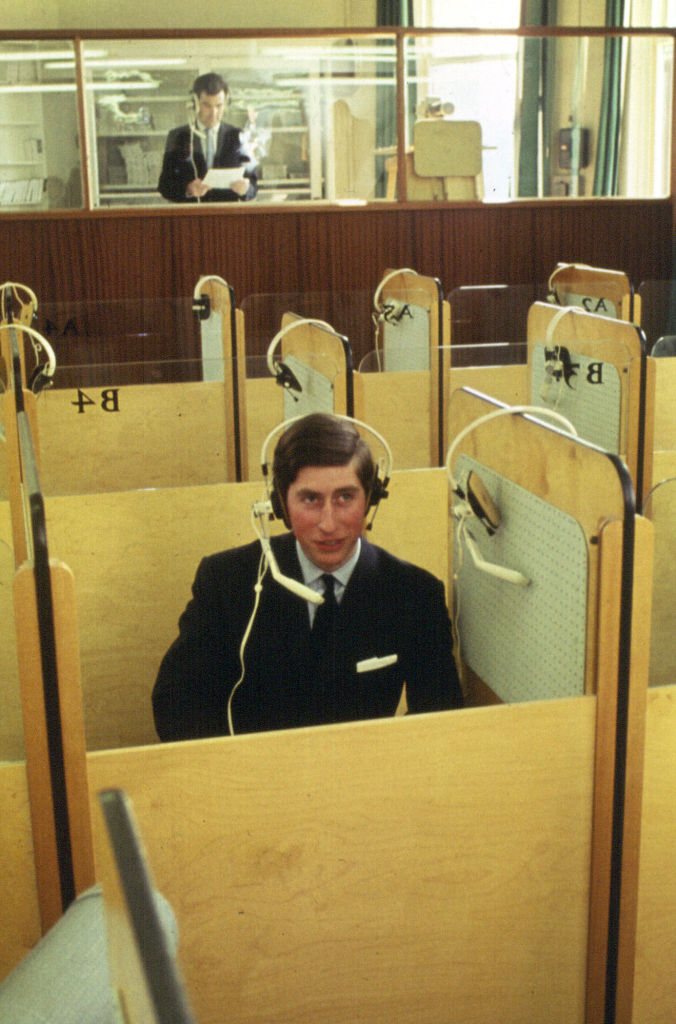
Millward helped Charles with his pronunciation for his speech at the Investiture ceremony at Carnarfon Castle. The Labour government, led by Prime Minister Harold Wilson, wanted to modernize Britain, and in Wales, coal mines were closed and new industries were developing. The government hoped that the ceremony would show their concern for Wales.
In a 2019 ITV documentary, Charles: 50 years a Prince, Charles said of his effort to speak in Welsh: “I did my utmost to learn as much as I could. But in a term it’s quite difficult, and I’m not as brilliant a linguist as I’d like to be.”
The ceremony, as in The Crown, was broadcast by the BBC and Charles gave his speech in both Welsh and English.
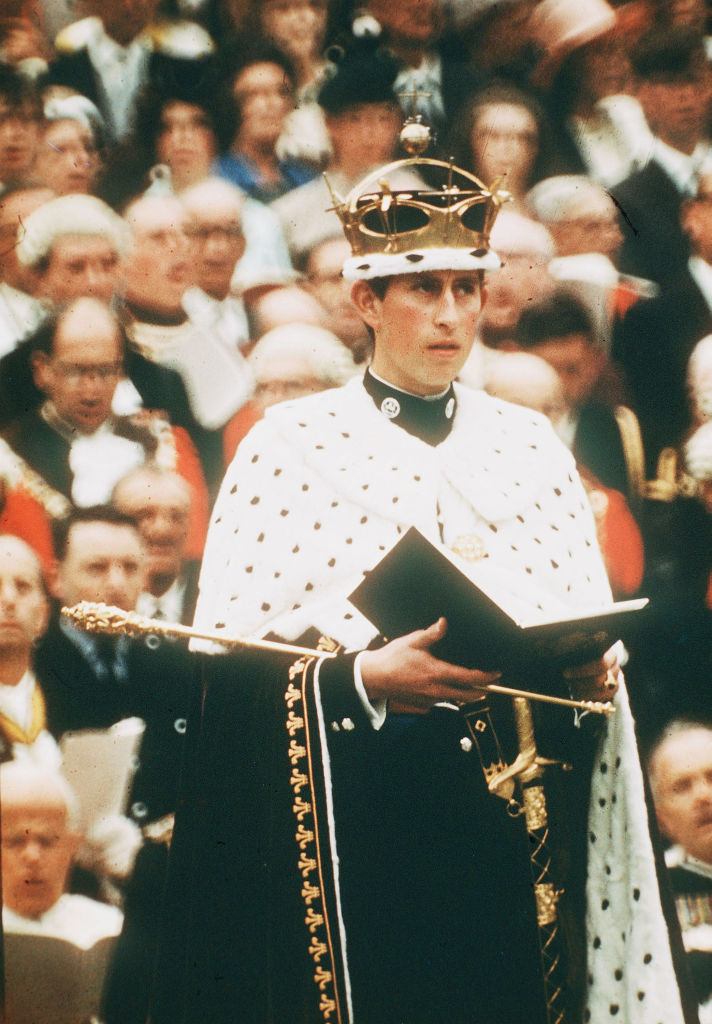
What was the nature of Prince Charles’ relationship with his Uncle, Edward VIII?
The relationship between Prince Charles and his great uncle Edward VIII, who came to be known as David, Duke of Windsor, after his abdication of the throne, makes for an emotional storyline in the third season of The Crown. A young Prince Charles feels that he is different from the Royal family, and that he is unable to make a strong impression. Charles and the Duke of Windsor exchange letters about life, love and the responsibility the crown brings with it. “I think he sees something of himself in me,” Charles tells Lord Mountbatton.
His great uncle, as in real life, abdicated the throne to marry American socialite Wallis Simpson, for which he was ostracized by the Royal Family. The series intimates that Charles fears that he would have the same fate if he married someone against his family’s wishes.
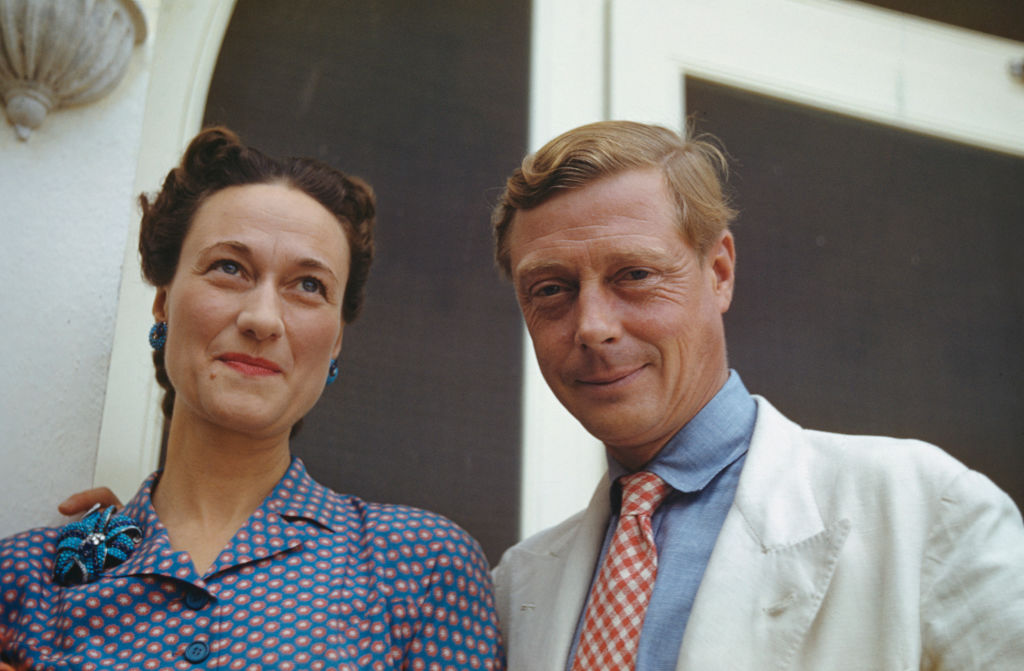
Howard Hodgson’s book, Charles: The Man Who Will be King, which draws on excerpts from Prince Charles’ diary, reveals a close relationship between Charles and Edward VIII. “I asked him frankly if he would like to return to England for the last years of his life,” the book reports Charles having written in his diary, “and he hesitated to ask Wallis if he should give me ‘the works.’ It sounded as though he would have liked to return, but he felt as though no one would recognize him.”
Prince Charles, according to Hodgson’s book, felt that his uncle’s situation was “tragic.” As in The Crown, Prince Charles attended his great uncle’s funeral on May 28, 1972.
Correction, Nov. 18
The original version of this story misstated which role Prince Charles was rehearsing for a play in The Crown. He played Richard II, not Richard III.
More Must-Reads from TIME
- Cybersecurity Experts Are Sounding the Alarm on DOGE
- Meet the 2025 Women of the Year
- The Harsh Truth About Disability Inclusion
- Why Do More Young Adults Have Cancer?
- Colman Domingo Leads With Radical Love
- How to Get Better at Doing Things Alone
- Michelle Zauner Stares Down the Darkness
Contact us at letters@time.com